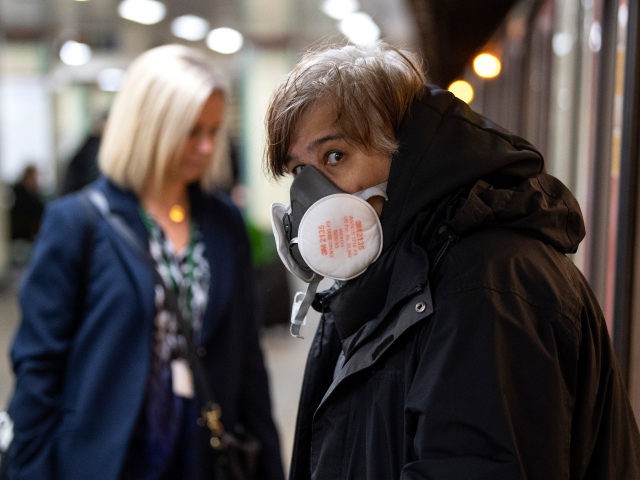Britons are nowe more frightened of being in enclosed or poorly ventilated spaces with people not wearing masks than they were in July before coronavirus restrictions were lifted, according to a poll.
A YouGov poll published on Wednesday found that a combined 72 per cent of adults in Great Britain would feel “less safe” if they were in a crowded or un-ventilated pace with people not wearing face-coverings. Of those, 51 per cent said they felt “much less safe” in such settings, with 21 per cent saying they felt “a bit less safe”.
Fewer than one-in-five, 18 per cent, said it would make “no difference” to them whether others wore masks or not.
The proportion of those being asked on October 20th is even a little higher than those asked the same question on July 5th, weeks before the government lifted most of the restrictions from England’s third lockdown, where a combined 70 per cent said they would feel less safe.
Polls from the past 18 months have shown Britons appear to be in a state of fear over the coronavirus, backing further restrictions and stricter punishments for those deemed to have broken social distancing laws, and even missing some aspects of lockdown.
Britons were not always so fearful, however, with the change in behaviour perhaps by government design.
A poll from mid-March 2020 found most were not worried about the Chinese coronavirus — apparently a lack of concern that troubled government advisors from the Scientific Pandemic Insights Group on Behaviours (SPI-B), a behavioural science sub-group of the influential Scientific Advisory Group for Emergencies (SAGE).
A SPI-B paper entitled “Options for increasing adherence to social distancing measures” discussed at a SAGE meeting on March 23rd noted that “a substantial number of people still do not feel sufficiently personally threatened” by Covid-19.
Under a section entitled “Persuasion”, the behavioural scientists advised: “The perceived level of personal threat needs to be increased among those who are complacent, using hard-hitting emotional messaging. To be effective this must also empower people by making clear the actions they can take to reduce the threat.”

COMMENTS
Please let us know if you're having issues with commenting.